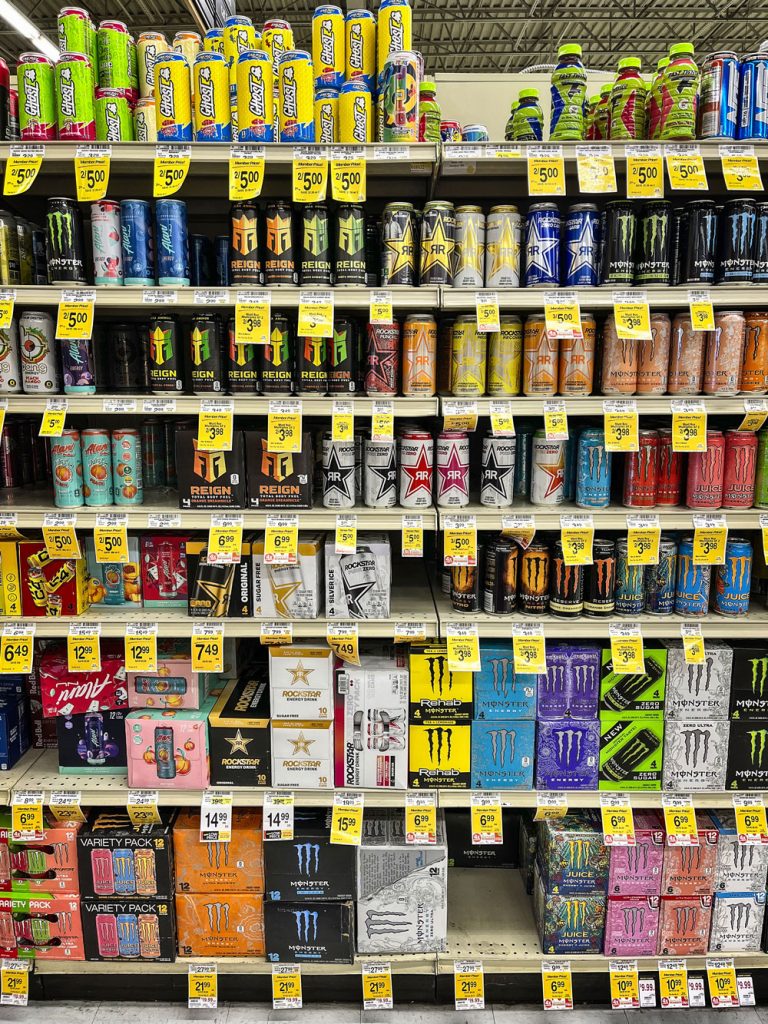What is in your energy drink?

The popularity of energy drinks has spiked in the last few years with a vast variety of brands and flavors as seen in this display.
The popularity of energy drinks and energy shots has spiked significantly since 2020 and sales in the U.S. are nearly $12 billion. People are relying on the stimulants in energy drinks to boost their energy and alertness in the morning, much like having a cup of coffee, but people are also sipping them later in the day to keep running.
Athletes and those engaging in intense physical activities often reach for energy drinks for the caffeine and other ingredients that can enhance physical performance, endurance and reaction times. Men between the ages of 18-34 make up the majority of the energy drink consumers and following that, one-third of children, 12- to 17-years-old, are drinking them regularly, according to the U.S. Department of Health and Human Services.
Energy drinks often have colorful cans, slick logos with enticing names and a variety of tempting flavors that cater to different tastes and preferences. When purchasing an energy drink from the vast array of choices, read the ingredients and nutritional information on the can to learn what is inside. The three main things to consider are the caffeine content, the sugar and calorie content plus the other additional ingredients. Be aware of the number of servings in each can; if a can has two servings, all the nutrition facts need to be doubled.
High caffeine consumption has drawbacks that may include an increased heart rate, jitteriness and dehydration. Devon Nelson of Big Life Integrative Health added, “Energy drinks can dysregulate the brain which research shows can cause symptoms like anxiety and insomnia.”
Many energy drinks are loaded with sugar and calories, contributing to weight gain and an increased risk of diabetes. Check the label of any zero sugar and/or zero calorie energy drinks for artificial sweeteners which have been proven to disrupt gut health and increase the risk of metabolic disorders.
Energy drinks vary greatly in their additional ingredients. Many include several vitamins and minerals but often at excessive amounts. Look for products with few and familiar ingredients. Look up the unfamiliar ingredients.
Frequent consumption of energy drinks can lead to dependency and withdrawal symptoms, similar to other caffeinated beverages. Mixed with alcohol, energy drinks can pose serious health risks. “Research also indicates that energy drinks can cause dysfunction in the cardiovascular and neurological systems which can increase a person’s risk for heart dysrhythmias or seizures,” Nelson stated.
The bottom line is that having an energy drink once in a while for a boost of energy is one thing, but misusing or overusing is another.
Article and photo by Lisa Nicklanovich